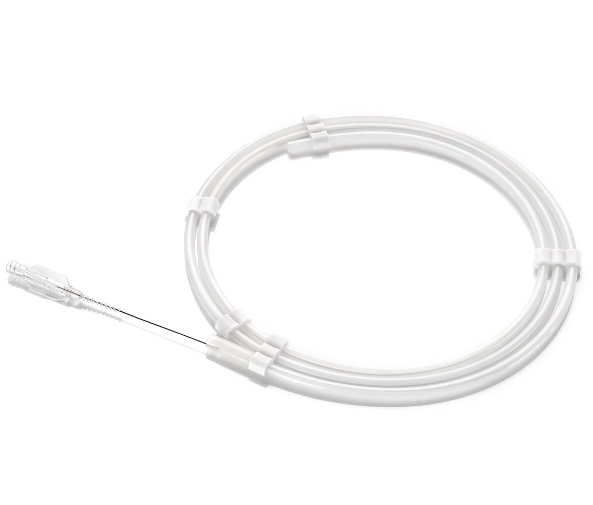We'd Love to Hear From You
Curious about product features, price quote, registration, delivery time, etc? We're ready to answer any and all questions within one business day.
Percutaneous Transluminal Coronary Angioplasty or PTCA is a procedure used in the treatment of ischemic heart diseases that are due to blockages in the coronary circulation. It can be defined as the process of dilating coronary artery stenosis using an inflatable balloon and a metallic stent introduced into the arterial circulation via the femoral, radial or brachial artery. There is a better prognosis in the presence of a soft lesion that does not involve any arterial bifurcations.
PTCA is performed by inserting a tube called a catheter into the narrowed area of the artery. At the end of the catheter, there is a balloon, which is inflated when the target area is reached. This expansion causes a widening effect on the blocked area to restore normal blood flow. Also, this action can disturb the plaque deposits and unbind them to lessen the measure. To ensure that the artery doesn’t narrow down again, a stent is inserted in the area. During the healing process time, the tissue will be formed over the stent as the blood flow gets normalized. The Angioplasty process can be performed safely and effectively with the help of some technologies like interventional cardiologists making use of fluoroscopy, which is a special type of X-ray instrument used to detect the location of artery blockages. Intravascular ultrasound allows them to anticipate the blood vessels to select the right size of catheters, stents, and balloons.

Coronary arteries or the blood vessels leading to the heart are some of the most crucial parts of your circulatory system. They develop blocks when a thick, hard substance called cholesterol plaque begins to accumulate along the arterial walls. As more plaque collects over time in a process known as arteriosclerosis, the blood flow within the artery becomes restricted.
As arteriosclerosis progresses, more and more of the coronary artery becomes blocked. This results in a lack of oxygen to your heart, which is a serious condition called coronary artery disease (CAD). People with CAD have to undergo PTCA to prevent heart attacks. People who have diabetes, high cholesterol and high blood pressure are at high risk of developing CAD.
PTCA is effective in reconstructing normal blood flow in the arteries. However, this procedure brings about a small amount of risk to the patients. There is the possibility of getting severe complications in 1 out of every 2000 procedures where there is the risk of bleeding is also significantly low.
There’s no difference between PTCA and PCI since Percutaneous Transluminal Coronary Angioplasty, or PTCA is also referred by the name Percutaneous Coronary Intervention or PCI.
The main use of PTCA balloon catheter is through minimal invasive surgery(PTCA) to expand the patient's stenosis of coronary arteries lesion, and improve the myocardial blood flow. PTCA Balloon Dilatation Catheters are indicated for balloon dilatation of the stenotic portion of a coronary artery or bypass graft stenosis for the purpose of improving myocardial perfusion.
SCW MEDICATH LTD, established in 1996 and headquartered in Shenzhen, is the first factory to develop and manufacture Central Venous Catheters, Blood pressure Transducers, and many other products in China. As a professional medical manufacturer, SCW has specialized in Intervention, Anesthesiology & Critical Care, Obstetrics & Gynecology, Urology, Medical Imaging, Orthopedics, and other high-value medical consumables. At present, SCW has more than 60 domestic registered products and more than 30 CE certified products. SCW is certified by ISO13485 Quality System Certificate and CE Certificate. SCW products are sold across China and exported to over 80 countries and regions. For more information about PTCA balloon catheter, please do not hesitate to contact us.